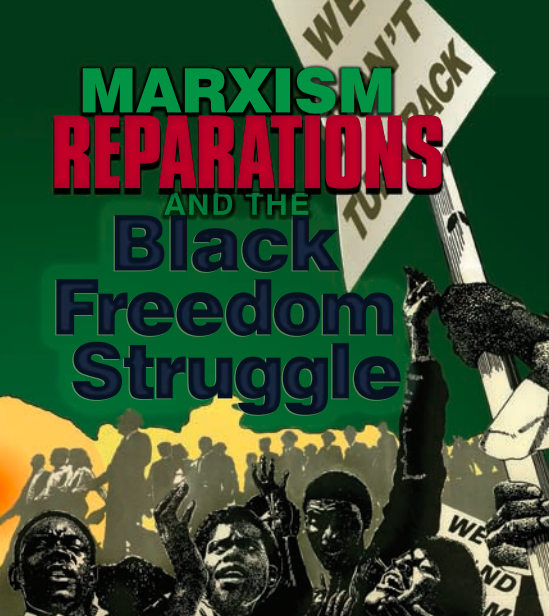What We Read in August
catch up with our reading and writing
For the next two weeks, Dwayne and I are working behind the scenes to prepare for our upcoming Fall content. Our regularly scheduled essays will return in two weeks.
We launched Religion in Revolt on July 5, and in just two months, we have written seven essays, including our three-part manifesto: “We are fighting for our lives”; “We have to pick a fight”; “We must understand what we are resisting.” We are so proud of this work, and we are so grateful to everyone sharing these essays.
We are also writing outside of RR, including my work at Bronx Frontlines, where I write about Dominican identity and displacement in New York City. Some of the BF essays and reporting I am most proud of include “A day of hazardous air in the Bronx”; “Reading Audre Lorde in the spring”; and “Easter, Eric Adams, and revolutionary theology in New York City.”
Dwayne’s work has appeared in The Bias Magazine, Sojourners, the National Catholic Reporter, and America Media. He wrote about nuclear weapons in “Where Oppenheimer and Pope Francis Agree”; transphobia in “Cis Christians Don’t Need to Understand Trans People to Care for Them”; and affirmative action as Catholic social teaching.
For every essay we write at Religion in Revolt, we spend days and weeks reading, learning, and analyzing. We are deeply committed to political education for ourselves and our RR community. In my last essay, “On Assata Shakur and political education,” I wrote about how important it is to sit with accurate U.S. imperial history and the role of Black women in liberation work.
As part of this ongoing educational commitment, here are writers who have challenged, educated, and inspired me this summer.
***
As I wrote about Assata’s life, I learned about the work of Monica Moorehead, a teacher, writer, and political activist from Alabama. In “The legacy of Black August,” Moorehead describes the significance of the annual celebration “as a commemoration of Black resistance, in whatever form, to white supremacy.”
She adds: “Black August is rooted in a theoretical and practical understanding of the national question: that there are super-exploited oppressed nations and a dominant white oppressor nation with a repressive state apparatus to protect profits and private property.”
Moorehead talks about Lenin and lists revolutionaries from all around the world and throughout history. She describes how those leaders and thinkers mobilized their people to think, fight, and live outside the white, neocolonial imagination. “Black August is an important month to rededicate ourselves today as revolutionary socialists and communists to defend the right to self-determination for nationally oppressed peoples — Black, Latinx, Indigenous, Arab and Asian nations,” Moorehead writes.
Along with learning more about Moorehead’s life and work, I am reading Marxism, Reparations, and the Black Freedom Struggle from the pages of Workers World.
***
On the cultural front, I read “Dear Erica Mena, You Can’t Co-Opt Black Culture & Hate Black Women” by Dash Harris. Harris is a speaker, writer, consultant, and the co-founder of AfroLatinx Travel. Her work focuses on Afro-diasporic, Black identity.
For Refinery29, Harris writes about Mena’s anti-Black slur on “Love & Hip-Hop: Atlanta” and the prevalence of anti-Blackness among racially ambiguous women who identify as Afro-Latine.
Harris writes:
So many non-Black Latinas, including mestizas, mixed-race, and racially ambiguous women, have launched and sustained their careers from Black media and specifically because of Black women, like Mona Scott-Young, the creator of the “Love and Hip-Hop” franchise, and Shaunie O’Neal, creator of “Basketball Wives.” Black media gives them access into Black spaces by their “POC” proximity for them to inevitably expose their anti-Blackness, because you can only hide your ideologies for so long.
Shamira Ibrahim is one of my favorite culture writers. Her essays are brilliant and timely, exploring issues and trends related to technology, the internet, celebrity culture, and identity. Her work has appeared in NPR, The Washington Post, Vogue, and Harper’s Bazaar.
Last month, for The Cut, she wrote one of the best hip-hop anniversary essays. In “What About the Women in Hip-Hop?” Ibrahim writes that despite women's foundational influence on the genre since its birth in 1973, it is “often framed as…inherently masculine.” She adds: “Hip-hop cannot tell the story of its journey from subculture to monoculture without reckoning with its fraught relationship with gender—having capitalized on misogyny while being propelled forward by the innovations of women.”
***
We want to continue to analyze and build with our community sustainably. Thank you to everyone engaging with our work every week.
Please email us the writers, organizers, thinkers, educators, books, essays, and more that inspire you to religionrevolt@gmail.com.
Have a restful long weekend.
In solidarity,
-Olga
